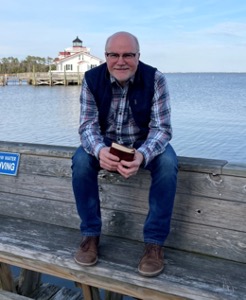Relationship Rebuilding: working your side of the road

All relationships are two-way streets, but that doesn’t exclude us from repairing our side of the road. Whenever a road is under construction, there is a preparation process. Likewise, relational rebuilding, will require persistent preparations.
Jesus is a Master Rebuilder. He takes our brokenness and restores our relationship with God the Father. While he waited on us to respond, he was active in his preparations. We can follow his example when we see the need for relational rebuilding. We can work on our side of the road.
# 1: Exercise humility, not entitlement.
When relationships are broken it’s easy to justify our personal failures and focus on the other’s faults. Not surprisingly, such an approach breeds a spirit of entitlement. The entitled person waits for their opposition to begin the rebuilding process first. Jesus provides a more excellent example.
“Have this mind among yourselves, which is yours in Christ Jesus, Jesus, who, though he was in the form of God, did not count equality with God a thing to be grasped, but emptied himself, by taking the form of a servant, being born in the likeness of men. And being found in human form, he humbled himself by becoming obedient to the point of death, even death on a cross” (Philippians 2:5-8).
As the Creator, Jesus had every right to be entitled (John 1:1-3), but he chose humility instead. Note that his humbling was an active process, not a passive one. He “emptied himself.” He “humbled himself.”
A humble spirit is the best preparation for working on your areas of weakness. It also gets you ready for the difficult conversations that will certainly happen on the way to restoration. When you’re walking in humility, it’s not so hard to have your own sin pointed out. The humble person is more likely to see criticism as constructive.
# 2: Seek compassion for others, not comfort for self.
When a relationship has been damaged (and we’ve been hurt in the process), we push back. We naturally move towards self-protection. Our comfort takes front seat, and our care for others is relegated to the back of the bus. Jesus takes an opposite approach.
“When he saw the crowds, he had compassion for them, because they were harassed and helpless, like sheep without a shepherd” (Matthew 9:36).
The word behind “compassion” means to feel something inside. In this context, it means to feel sympathy or pity for another. Undoubtedly, the crowds were pushing in and demanding more of Jesus. Yet, his compassion for them trumped his personal comfort. He saw their needs and was moved with compassion.
As you rebuild your side of the road, learn to look upon the brokenness of the other with sympathy not judgment. In so doing, you’ll be more prone to work on your own weaknesses, and you’ll be ready to help them if you’re asked.

#3: Sacrifice by faith, not by sight.
Jesus makes seven statements from the cross. In each of these statements, he is uniquely concerned with others and not himself. To the average viewer, it would appear that Jesus was at the end of his life on the cross. So, why care for others now? What would be the purpose? Jesus was showing us how to live by faith, not sight. Notice the statement he makes on our behalf.
And Jesus said, “Father, forgive them, for they know not what they do.” And they cast lots to divide his garments (Luke 23:34).
Jesus hadn’t only placed his faith in a sovereign God, but he’d placed his faith in the unfailing Word of God. At the foot of the cross were those who were casting lots for his garments. Though the Roman soldiers were unaware, their actions had been prophesied a 1000 years earlier in the 22nd Psalm. From the cross, Jesus realized that, in their sin against him, they needed forgiveness. By faith he asked God on their behalf.

That forgiveness would be granted, but not immediately. Sometime later, thousands in Jerusalem would “repent and be forgiven” (Acts 2:38). Jesus made the request for their restoration by faith not by sight. A necessary reminder when you attempt to restore your broken relationships, be patient. Ask God by faith.
If you’re waiting for the other person to make the first move, you’re operating by sight not by faith. Jesus’ pattern teaches us something else entirely. Step out on faith. Do all you can to bring about the restoration process. Then, give the Spirit of God room to operate in the other person’s life and trust that he will.
While you wait, stay busy repairing your side of the road.

Phil Moser is the creative mind behind the Biblical Strategies series for personal growth, counseling, and discipleship. He authored Safe in the Storm: A Ukrainian Children’s Tale specifically for refugee children throughout Europe. Over 70,000 of his resources were distributed throughout Europe during the war. His men’s small group study, 4M Training, helps men apply key spiritual growth dynamics. His unique small group videos are beautifully filmed at National Park locations and can be streamed free of charge. His works have been translated into Bengali, Hindi, Mandarin, Russian, German and Ukrainian.

